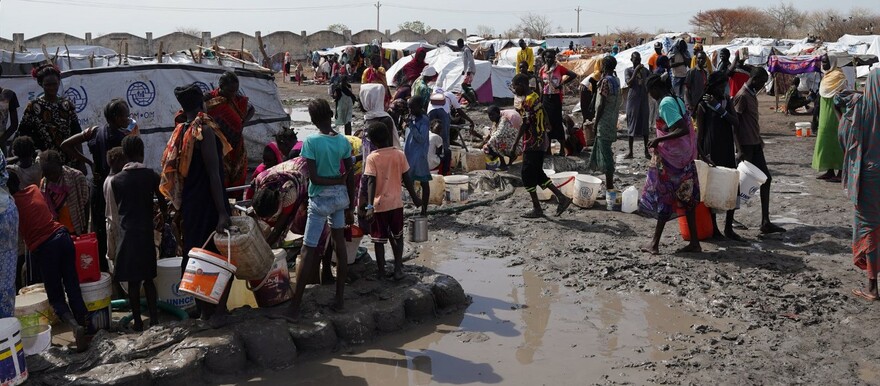Médecins Sans Frontières (MSF) said it has commenced the operation of mobile clinics, aiming to deliver primary healthcare services to returnees from Sudan at Zero and Riverside transit sites in Renk town, Upper Nile state.
In a statement extended to Radio Tamazuj Tuesday, the international medical organization said it is also purifying up to 90,000 litres of river water daily to ensure a safe supply of drinking water for the displaced population.
MSF further said its teams conducted a measles vaccination campaign, immunizing 1,469 children, and performed malnutrition screenings at the two sites in Renk.
An isolation ward is being established in the county hospital to treat measles patients, it added.
“Thousands of people are currently stranded in the main transit centre or various locations in Renk town, lacking basic necessities such as shelter, water, sanitation, and food. The existing healthcare system is overburdened, and the limited humanitarian response cannot meet the additional needs. A larger, coordinated effort by humanitarian actors is crucial to address the requirements of those arriving from Sudan,” stated Jocelyn YAPI, MSF Head of Mission in South Sudan.
“Our teams are conducting approximately 110 medical consultations daily, providing treatment for patients suffering from acute watery diarrhea, respiratory tract infections, eye infections, malaria, and other diseases. The inadequate shelter, water, and sanitation conditions also put these individuals at risk of disease outbreaks.”
In Northern Bahr El Ghazal state, MSF said it has established a mobile clinic near the Wedwill refugee camp to offer healthcare services to refugees and returnees from Sudan.
It pointed out that the clinic also provides consultations for the host communities.
A conflict in Sudan erupted in April 2023, resulting in hundreds of deaths and forcing over 200,000 people to flee across the borders. As the humanitarian situation worsens, more individuals are undertaking perilous and lengthy journeys to neighbouring countries, including South Sudan.
According to the United Nations, over 110,000 people have fled the conflict in Sudan and sought refuge in South Sudan. Renk town in Upper Nile state has received approximately 75% of these returnees and refugees.
The majority of the individuals are South Sudanese, arriving at the border exhausted and highly vulnerable. Only a few of those remaining in Renk are able to afford transportation fees to continue their journey to other parts of the country. Many are uncertain about their future, awaiting assistance for survival and transfer to their places of origin.
“We are facing great difficulties. There are no mosquito nets, water, or food. We are in dire need of shelter. There are numerous snakes, and people sleep on the ground. We encounter numerous problems here. The rainy season is approaching, and the children are falling ill. We do not wish to stay here,” expressed Treza Noyul, a mother who relocated with her seven children from Khartoum a month ago and is currently residing with hundreds of returnees at the storage halls in Renk.




